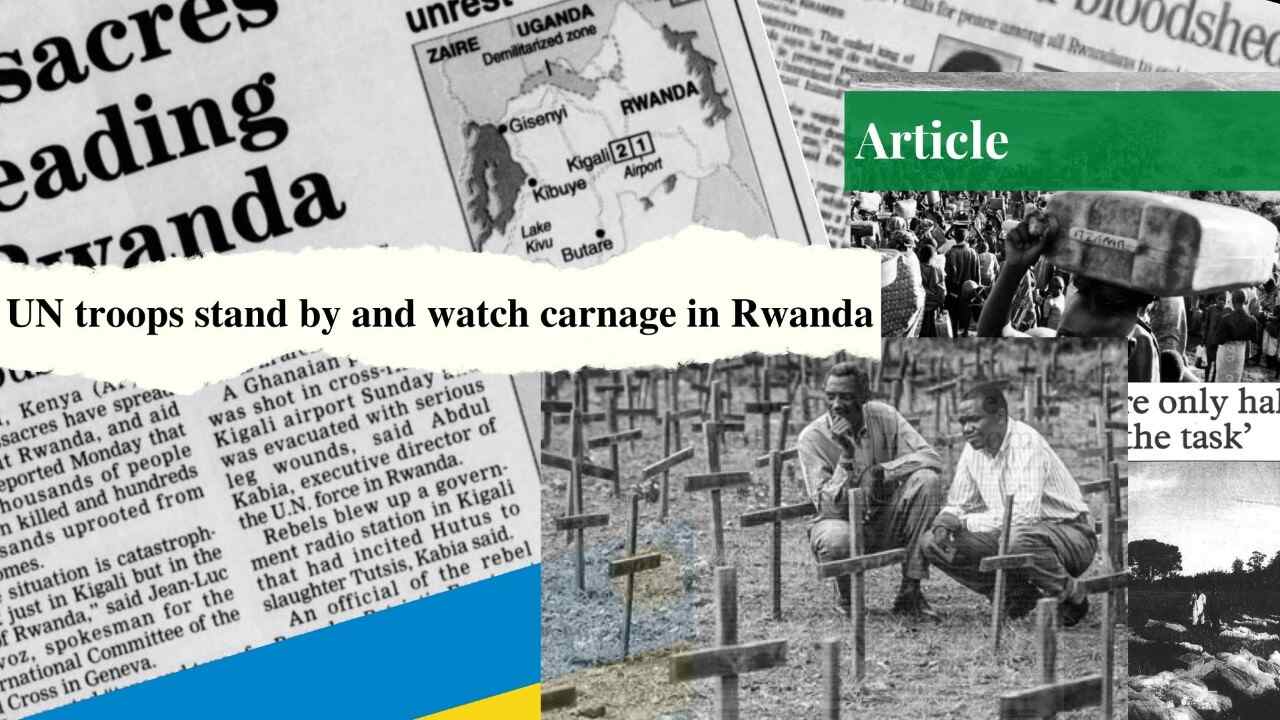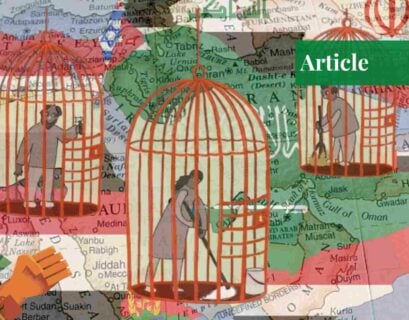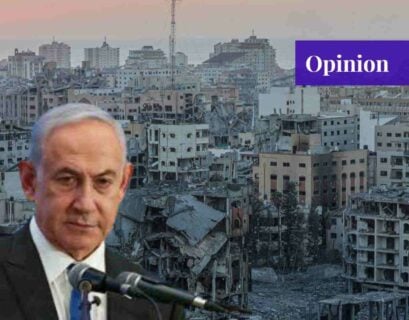Iman Faisal is currently pursuing her bachelor's in peace and conflict studies from National Defense University Islamabad. Her areas of interest are the Middle East, South Asia, Africa, sectarian conflicts, terrorism, and criminology.
Introduction
Humanitarian intervention is socioeconomic or military aid, humanitarian armed intervention, or an attempt at third-party mediation during an ongoing conflict. Theoretically, these types of assistance are given on humanitarian grounds to lower human suffering due to the conflict.
As per Ludlow, humanitarian armed intervention is “forced military intervention sanctioned by the United Nations, based primarily on humanitarian grounds” mostly during the internal conflict of the state. The aim behind launching an armed intervention in a sovereign state is to lower the threat caused to human lives and security.
Humanitarian interventions are mostly launched when people of a state are threatened by their own state government such as the state-sponsored campaigns of ethnic cleansing launched in Yugoslavia, Kosovo, and Rwanda, and the humanitarian crisis in Somalia. These humanitarian catastrophes were classic examples of circumstances for which international organizations and principles like humanitarian intervention have been established.
Ayoob adds that a third country is likely to intervene militarily when it assumes that the institutions of the host country have collapsed and are unable to provide security to its own citizens. He mentions the Hobbesian classic formulation to emphasize his point that “their citizens’ lives have therefore become poor, nasty, brutish and short”.
Legal Perspective
The principle of sovereignty and non-interference in international society contradicts the phenomenon of humanitarian intervention. These principles demand that no state should intervene in the internal or external affairs of the other state. James Mayall proposed that the “dilemma of humanitarian intervention can be best understood by studying the concepts of solidarism and pluralism”.
The principle of solidarism describes humans as an end and not the means to pursue the interests of the states. It further asserts that states are made up of humans; no human society means no state. Therefore, it is crucial to secure their rights. Ludlow assumes that the Universal Declaration of Human Rights of 1948 has given supreme importance to the human’s right to life, which then further expands to the “provision of food, water, shelter and security”. It is an obligation of the state to protect the rights of its citizens.
The proponents of human rights are of the view that the state which fails to fulfill its responsibility of protecting citizens, its ultimate sovereignty falls into the hands of the international community. It then permits international actors to interfere politically, diplomatically, economically, or even militarily to mitigate the threat of emerging deadly conflicts.
Rice and Dehn cite the argument of international law expert Thomas M. Frank that if an armed intervention is made when the state gravely violates the rights of its own citizens, it is justified. He asserts that the sovereignty of that state falls in the hands of the international community in that case. Deadly conflicts have caused major losses to humanity in past. From the thirty years of European conflicts to world wars and the brutal conflicts of the 1990s, all of them have cost human lives.
Humanitarian Intervention During the Rwandan Genocide
The above-cited authors agree upon the fact that humanitarian intervention is an established principle when a state fails to protect its own citizens, either turning against them itself or not being able to protect them from the intervention of another state. They also emphasize that the international community did not take any significant measures to prevent the Rwandan genocide.
Ludlow argues that few efforts were made by Belgium and France to manage the conflict. He also writes that both states were motivated by their own interests in Rwanda and therefore the intervention was not purely on humanitarian grounds.
Belgium was the former colonizer of Rwanda, and it facilitated the peace agreement called the Arusha Accords. Belgium also deployed a battalion of troops there but soon realized that the lives of the troops were in danger, so it not only withdrew its troops but started lobbying to convince the international community not to deploy personnel from their militaries as well.
While the UN-authorized mission of France saved 2800 civilians, it also supported Hutus economically and militarily in their genocidal campaigns as well. This mission was also declared unsuccessful when French troops had to withdraw for the same reason as Belgium.
Role of Media
Shaw is of the opinion that the international community does not intervene in any crisis if their political, economic or territorial security is not threatened. Shaw also sheds the light on the role of media, specifically western media discourse, in the debate on humanitarian intervention. He argues that the way western media portrays Africa as helpless and violent largely affects public opinion.
The conflicts in Africa are depicted as “their conflicts” and hence “their crisis” was not reported in the way it should have been. The devastating civil wars and genocides in the African continent did not get the required attention, and the massive humanitarian crisis was reported as “famine in Somalia and Rwanda” or “malnourishment of children in Ethiopia”.
Shaw stresses that if these humanitarian catastrophes had become a threat to the political, economic, or territorial security of the West, then “their crisis” might have become “our crisis”. Taking the examples of intervention in Yugoslavia and Iraq into consideration, the issues were highlighted by the media.
Shaw also writes that the “Kurdish Genocide in Saddam’s regime” and the “mass killings in Yugoslav” were brought into the focus of world leaders by the media. Either for image building, public pressure, or for their own interests, the world leaders ordered humanitarian intervention in those regions.
This shows that media discourse has an impact on the policy-making and actions of governments. Western media did not cover the heinous atrocities and crimes against humanity during Rwandan Genocide. The arguments and evidence of Ibrahim Seaga Shaw prove that media reporting plays a vital role in timely intervention or delay. It also depicts the importance of media in conflict management and resolution.
Conclusion
Humanitarian intervention can be used to manage the armed aspect of the “inevitable” conflicts. It involves many factors for the international community to take action regarding this subject matter. It is the responsibility of the international community to pursue the set principles and precedents in international law honestly, instead of politicizing it for certain benefits.
If you want to submit your articles and/or research papers, please check the Submissions page.
The views and opinions expressed in this article/paper are the author’s own and do not necessarily reflect the editorial position of Paradigm Shift.



















